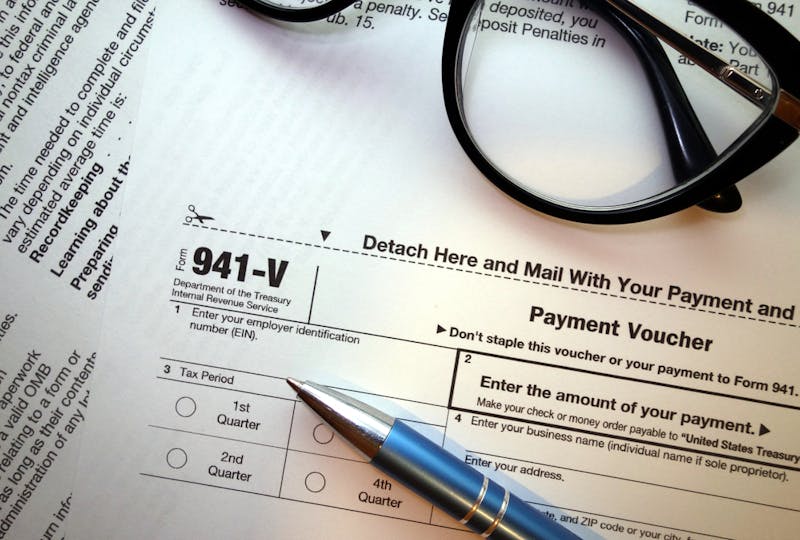As a small business owner, you will need to withhold federal taxes, social security tax, and Medicare tax from your employee's paychecks. At the end of each quarter, you will need to use Form 941, the Employer's Quarterly Federal Tax Return, to report the taxes withheld from your employee's paychecks. When completing the Form 941, you will be able to calculate how much you owe the IRS based on wages paid, taxes withheld, and other form inputs.
All three pages of Form 941 must be completed at the end of a quarter so that you can pay the IRS the taxes owed for the quarter. Some of the information required on Form 941 includes wages paid, taxes withheld, and other compensation items. Prior to starting the Form 941 plan to gather the necessary payroll records for the quarter.
As a quarterly form, Form 941 is due one month after the quarter ends. For example, the first quarter of the year typically ends on March 31, so the form is due by April 30. This gives you time after the quarter ends to prepare to record the necessary amounts on Form 941. If you deposit your taxes in a timely fashion, then you have an additional ten days to turn in the form. So, if you deposit your first quarter taxes by the due date, the form is now due by May 10.
In 2021, many critical due dates, like Form 941 due dates, fall on a weekend or holiday. The IRS states any due date that falls on a weekend or holiday may be pushed until the next business day available. For example, according to the IRS website, Form 941 is due by July 31 for the 2nd quarter of 2021. However, July 31, 2021, is a Saturday meaning the next available business day is Monday, August 2.
Need help keeping track of 2021 payroll and tax deadlines? Download PaycheckCity's free Payroll Calendar to help you stay on time and avoid late fees!
Looking for help with payroll and Form 941? PaycheckCity Payroll provides self-service payroll built for the needs of small business owners.
These free resources should not be taken as tax or legal advice. Content provided is intended as general information. Tax regulations and laws change and the impact of laws can vary. Consult a tax advisor, CPA or lawyer for guidance on your specific situation.




